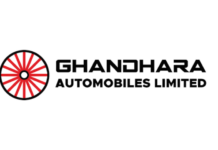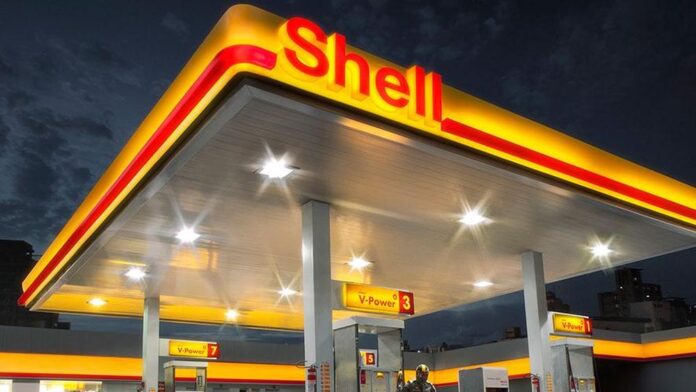Companies, as we know, are made up of humans. And so companies are prone to making entirely human errors. This is true for small mom-and-pop stores, and also true for well-oiled multinationals.
And such is the case for Shell Pakistan. In a notice issued to the Pakistan Stock Exchange on January 22, the company had to explain why it had missed a letter sent by the PSX on January 12. The reasoning? They had simply not checked their office mail. Really.
“We wish to offer our sincere apologies for inadvertently missing the Original Letter in our office mail, and therefore not replying to the same in a timely manner. We greatly appreciate the extension in time granted to us to reply,” the notice said.
So exactly, what was in this very important letter? Turns out, PSX sent the same letter to another company as well: K-Electric. The two companies had decided to sign a memorandum of understanding to explore the possibility of three electric charging stations in Karachi. In a notice on their website, the locations selected for installing 50 KWH rapid chargers are; the Shell Defence Filling-Station on Khayaban-e-Bahria, Askari Filling Station at Gulshan Town, and Mardan Filling Station at Gadap Town. In fact, over the next 3 to 5 years, SPL and KE will explore the opportunity of additional sites and strategically expand the EV charging network.
The PSX thought, well, this is significant, and sent letters. And whoever checks the mail at K-Electric does a significantly better job than whoever checks it at Shell Pakistan, because just two days later on January 14, KE responded.

“The arrangement would not result in a paradigm shift in the primary strategy of KE, nor would it tantamount to change in its primary business,” said KE. The company reasoned that it was the exclusive power distributor in Karachi, and power acquisition by any electric charging station would require an arrangement with KE.
Fair enough. In last week’s article, Profit noticed that it is Shell Pakistan that will be responsible for the charging station equipment, site preparation, installation and operations, while it is KE that will ensure the enhancement of the grid. What this means is that KE is not really the one bearing direct costs or direct revenue gains through this. It is Shell Pakistan. Besides, for KE this is like having a new domestic connection, and perhaps even less so than that, because the number of chargeable vehicles in Karachi are practically non-existent. KE’s only job is to expand its grid.
In fact, we predicted that it is probably Shell, and not KE, that needs to announce any new information, as they are the ones incurring the costs of the equipment. Which is exactly what happened this week. Shell Pakistan did indeed have to respond, and its explanation was three-fold.
First, Shell Pakistan argued that “it is only a preliminary MoU and nothing concrete has been finalised as of the date hereof.”
Second, it explained its current situation: “As you are aware, SPL has a vast network of retail stations which provide energy solutions to motorists across Pakistan; including Motor Gasoline, High Speed Diesel and Compressed Natural Gas. The provision of electric charging facilities at retail forecourts/petrol stations is common across the world and a natural addition to forecourts in Pakistan as well; especially considering the Electric Vehicle Policy recently approved by the Federal Cabinet.
Third, it explained its brand mission: “The inclusion of electric charging stations is not in any way a shift in the primary strategy of SPL, that is providing energy and services to its customers for their vehicles, nor would it tantamount to a change in its primary business. The MoU is SPL’s continued commitment towards long-term environmental sustainability through reduction in carbon emission and adoption of green energy.”
Yes, you read that correctly. The world’s fifth largest oil company is committed to environmental sustainability. One could bend over backwards trying to understand what this means (the best thing for the climate, if not for markets, would be if Shell Group were to cease to exist entirely, but that is another matter altogether).
But what is more interesting is the concerted effort that Shell Group has made in the last decade to rebrand itself from an oil company, to an energy company. It wants to become a net-zero carbon company by 2050. It also wants to shrink the carbon intensity of its products by 50% within 30 years, to reach 65% by 2050. It has also created a separate division for investments in renewable energy.
This is not true for Shell Pakistan, however. According to the latest 2019 annual report, Shell Pakistan’s retail network has over 760 sites, along with 130 convenience stores. But the only reference it has to something remotely considered alternative energy, is one solar powered tube well, and one solar powered flour mill, in a sole village in south Punjab in partnership with the National Rural Support Program.
These three potential electric charging vehicles are in fact, the closest Shell Pakistan has come to anything remotely sustainable sounding in Pakistan. In Profit’s opinion at least, this does represent a shift in their policy in this country. If the green revolution is to begin from Khayaban-e-Bahria, Gulshan Town, and Gadap Town, so be it.

























